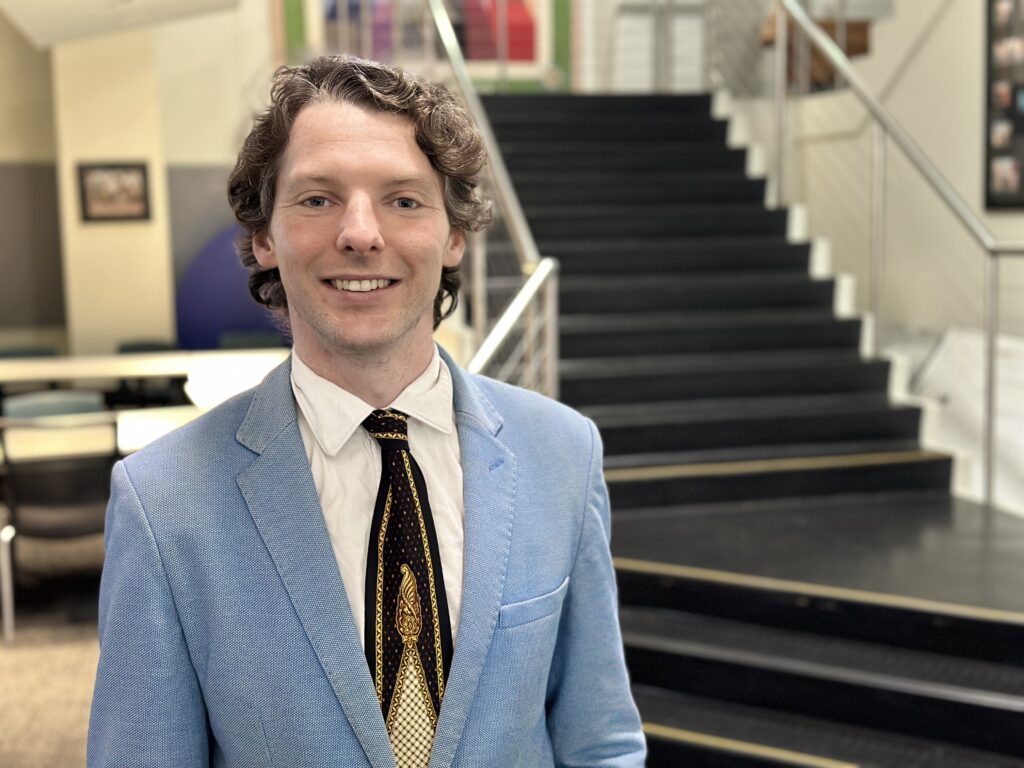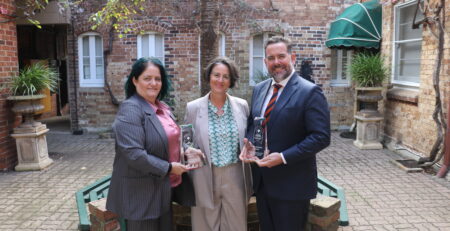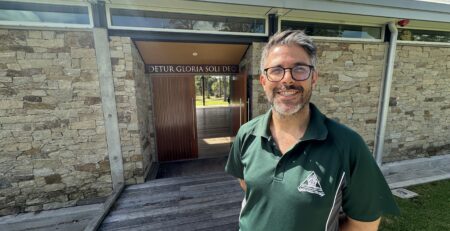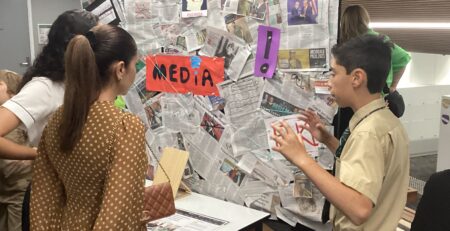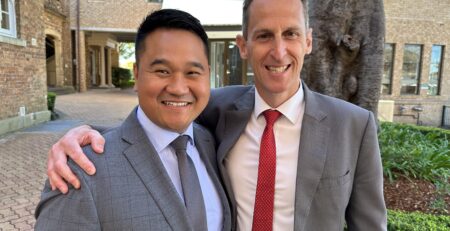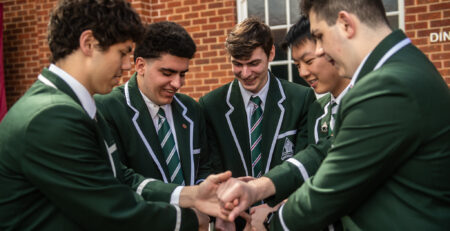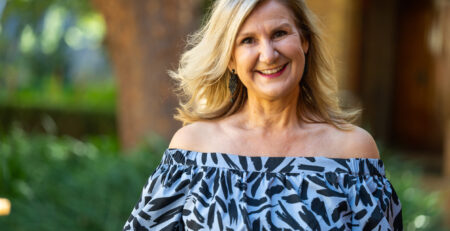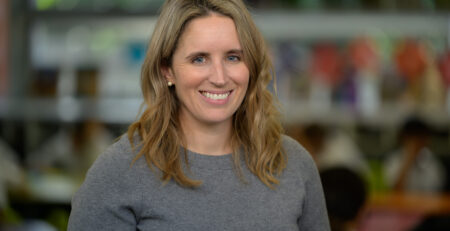Driving an improvisational renaissance
Over the past few years, Trinity students have discovered a renewed interest in the Performing Arts. As a Drama and English teacher at the Senior School, Mr Anthony Slaven has been thrilled to watch the interest grow and to be a part of the development of new Drama initiatives that have caught the attention of students.
Before coming to Trinity, Anthony had plenty of experience at different kinds of schools – from Catholic all-girls schools to all-boys schools and even homeschooling – but he knew that coming to Trinity was going to be different altogether.
“You’re not just going into a school, you’re going into a culture,” he says. “You’re constantly learning and growing and you never feel like you’re standing still. There’s always some new thing to reach for.”
Whilst every bit of experience before Trinity has shaped him into the educator he is today, he knew that Trinity would offer up opportunities he didn’t have elsewhere, especially when it comes to bringing his big ideas for the Drama department to life.
“I had lots of ideas to be creative and innovative but I didn’t always have the resources to be able to do that,” he notes. “Those resources include time and the right environments – something that I knew Trinity could offer.”
The fruits of these opportunities can be seen through the Theatre Sports Co-curricular.
When Anthony first took the mantle of this programme, it wasn’t an official Co-curricular programme and there were only a handful of students involved. After some competition success, the group gained traction in the Senior School, leading to an in-School Theatre Sports night where teams were able to perform to a supportive crowd, something Anthony is incredibly proud of. Now, there’s a programme finding its feet in the Junior School as other teams head off to the State Championships later this year.
“It’s been fantastic to have that opportunity to create a new Co-curricular when it wasn’t there before, and to have that full range of support to do it. Other teachers, not even in my faculty, have been giving up their time to help me achieve this, just for the sheer passion of it.”
This contribution from other teachers is a hallmark of working at Trinity, Anthony notes.
“Trinity is all about seeing the whole person, not just one facet, and you see it in the teachers as well as the students – they’re interesting people who are great practitioners, but they also have these incredible achievements and hobbies outside of the classroom that they use to create this culture to captivate the boys and enhance their learning.”
Collaborating with his colleagues through Professional Learning Teams (PLTs) has also had a significant impact on Anthony. Through a Classroom Observation PLT, he was able to take time to observe other teachers – from a variety of different faculties – to see how they teach and engage with students. Since then, he’s been able to bring some of those strategies and techniques into his own Drama classroom, with great success.
Reflecting on his experience at other schools, Anthony notes that the Drama department can sometimes be a one-man show, with one person needing to drive new initiatives, teach in the classroom and produce performances on their own. But at Trinity this hasn’t been the case.
“It’s incredible how Drama has grown and developed in the last couple of years. It’s a real team effort and collaboration that seems to thrive,” he says.
For his part, he’s excited to see the Theatre Sports Co-curricular grow even further and there are already big moments for the Co-curricular on the horizon, like the Meriden-Trinity Theatre Sports programme happening in Term 3.
“I really want to make this Co-curricular a cornerstone of the Trinity experience, alongside the amazing work they do in the Music and sporting departments. I want our Theatre Sports to be a real beacon, an example of what Drama and the subject can be, especially so the wider community can see the impact Performing Arts has in developing students’ self confidence and collaboration.”
This impact goes beyond the confidence to step onto stage, he says.
“It’s not about helping students become the great actors of tomorrow, but about making the great humans of tomorrow. Talking to people on the street, making decisions in the boardroom, standing up for the issues they believe in – Drama gives them the confidence to explore those environments because they’ve actually practised that and reflected on themselves and the world around them. They know the world they want to be a part of and they have the tools to shape it.”
Want to know more about working at Trinity? Check out all the employment opportunities available.


